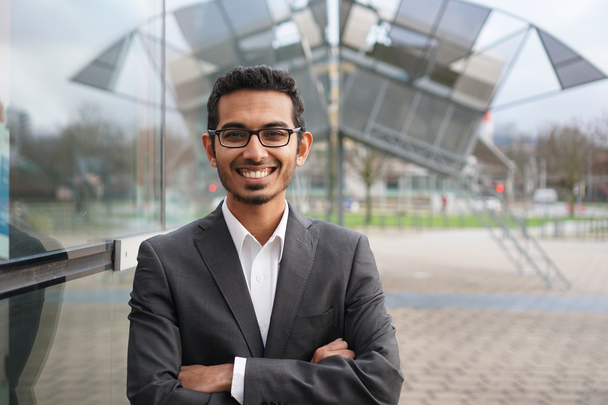
In December 2019 BrainLinks-BrainTools welcomed a new assistant professor: Prof. Dr. Abhinav Valada is an Assistant Professor and Director of the Robot Learning Lab at the Faculty of Engineering and Center of Excellence BrainLinks-BrainTools at the University of Freiburg. He is also a faculty in the recently established European Laboratory for Learning and Intelligent Systems (ELLIS) unit at the University of Freiburg.
He received his PhD in Computer Science specializing in Robotics and Machine Learning from the University of Freiburg and subsequently worked as a postdoctoral research scientist. He co-founded and served as the Director of Operations of Platypus LLC, a company developing autonomous robotic boats, and has previously worked at the National Robotics Engineering Center and the Field Robotics Center of Carnegie Mellon University. He received his MS in Robotics from The Robotics Institute of Carnegie Mellon University and BTech in Electronics and Instrumentation Engineering from VIT University.
He was selected for the first RSS Pioneers at the Robotics: Science and Systems (RSS) conference 2018 for impact in the field of robotics. Among others, he is a recipient of the doctoral consortium award at the International Symposium on Robotics Research in 2017 and the Chancellor's Scholarship in 2009.
Valada is an Associate Editor for the IEEE Robotics and Automation Letters and the IEEE International Conference on Robotics and Automation. He also serves in the Program Committee of several top conferences such as European Conference on Artificial Intelligence (ECAI), AAAI Conference on Artificial Intelligence (AAAI), and Conference on Robot Learning (CoRL).
The Robot Learning Lab http://rl.uni-freiburg.de
The Robot Learning Lab headed by Prof. Dr. Abhinav Valada is part of the Department of Computer Science and the Center BrainLinks-BrainTools. We seek to advance the foundations of robot perception, state estimation and control using learning approaches to enable robots to reliably operate in more complex domains and diverse environments. Our focus is to develop scalable lifelong robot learning systems that continuously learn multiple tasks from what they perceive using a diverse set of modalities and experience by interacting with the real-world.